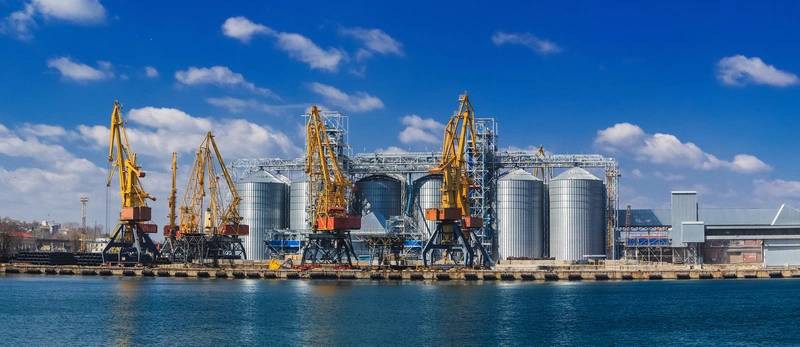Black Sea Shipping Rates Soar 20% as Reinsurers Cut Cover
Costs for hiring ships to transport commodities from the Black Sea have risen by more than a fifth since the start of the year, reflecting higher war risk insurance rates, industry sources said.
The Black Sea is crucial for the shipment of grain, oil and oil products. Its waters are shared by Bulgaria, Georgia, Romania and Turkey, as well as Russia and Ukraine. Since Jan. 1, when policies are renewed, reinsurers that provide financial protection for insurance companies have added exclusions for ships and planes for Belarus, Russia and Ukraine.

Six insurance sources, who spoke on condition of anonymity, said an exodus of reinsurers from the market had added to unease over the risk of ship seizures by Russia and liabilities related to the war in Ukraine, including floating mines or vessels getting stuck in ports for long periods Since the introduction of exclusions this year, insurers who provide cover will not have the cushion of reinsurance in the event of big claims.
The sources said no vessels had lost their insurance provision, but they expected higher rates that would vary depending on specific circumstances, and that war risk premiums had so far risen by more than 20%.
That could add to inflationary pressures, which last year reached multi-decade highs after the Ukraine war drove some commodity prices to record levels.
"The effect of (the exit of reinsurers) is reducing (underwriting) capacity in the market for war risk and will mean people will pay more this year," one marine insurance source involved said.
Ships typically have protection and indemnity insurance, which covers third-party liability claims including environmental damage and injury. Separate hull and machinery policies cover vessels against physical damage. In addition, vessels typically have annual war insurance policies.
Last year, the Lloyd’s of London market declared the Black Sea and Sea of Azov waters a high risk zone before Russia's invasion of Ukraine began on Feb. 24, meaning even ships entering areas not close to Ukraine required an additional war policy. Known as breach cover, the policy has to be renewed every seven days.
Industry sources say breach war policies for hull insurance are up by 20%-25% since the end of last year, which translates into additional costs of tens of thousands of dollars a day for a single voyage, and they are expected to rise further.
"For shipments going in and out of Russia you will find premiums going up. It could easily rise by 50% (from the end of last year) to reflect the cost of capital from not being reinsured," another marine insurance source said.
The rates are calculated as a percentage of the value of a ship. Ships values vary from around $20 million for older vessels to over $100 to $250 million for ultra modern tankers and liquefied natural gas (LNG) vessels. The cost of transporting crude oil from non-Russian Black Sea ports is estimated at $80,000 a day for the smaller aframax tankers, slightly firmer from the end of last year. Average tanker freight costs for aframaxes from Russian ports are quoted at $180,000 to $200,000 a day. The freight rates exclude the additional war risk premiums plus other expenses such as fuel.
Around 90% of the war risk market for marine and aviation is insured in Lloyd's and the wider London commercial insurance market, industry sources say.
(Reuters)
